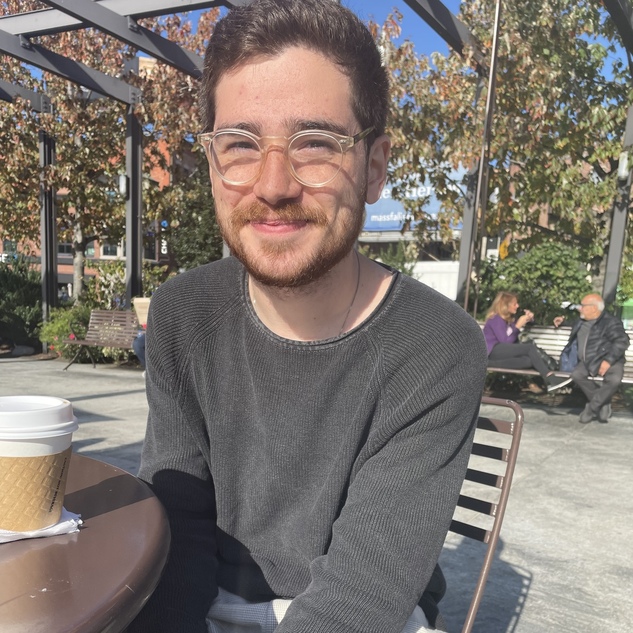Team
Albit Caban

How I got into science
I think I was into science since forever. Ever since I can remember, I wanted to be an astronaut, archeologist, biologist, you name it. However, neuroscience came later. I got into neuroscience during my junior year of my bachelor’s in molecular biology at the University of Puerto Rico. At the time, I was trying out research at an organic chemistry lab back home. I definitely enjoyed my work, but honestly, I wanted to ask questions related to biology, my initial interest. Wanting to return to biology, I turned to neuroscience! To me nothing seemed as interesting as the organ that makes us who we are. That said, Puerto Rico had very little neuroscience opportunities at that time and my pretty terrible GPA wasn’t helping either. So, I decided to try to apply for a summer internship at MIT to which I got rejected. However, I wasn’t about to give up. I applied to another program which allowed me to do research at a university of my choosing and in what to this day seems to me like the luckiest event of my life, I got accepted and you guessed it…chose MIT. There, I went on to do research in the lab of Dr. Mark Bear under Dr. Hector de Jesus Cortes and I discovered my passion for neuroscience. That summer I worked day and night and got a taste of everything that comes with neuroscience: the hard work, comradery, the failed experiments, and the beers afterwards, the successful experiments, and the adrenaline of discovery, and the thrill of coming closer to understanding ourselves. After that summer, I knew I was going to be a neuroscientist.
I came back to Puerto Rico and joined Dr. Gregory Quirks lab, where I studied decision-making and matured as a scientist. I learned how important is for mentors to believe in you and empower you, how a lab can be a family, and confirmed that neuroscience is hard, but I would not want to do anything else. Moreover, I learned I was really interested in learning and memory. Having found this interest and what I value in a scientific environment, I chose Steve’s lab as my home for these next years. Now here at BU, I study how memories are updated and evolve throughout time to guide decision making. Decision-making is impaired in disorders such as PTSD, depression, and addiction. It is critical for us to understand how memory guides decision-making to better treat these disorders.
Non-science biography:
I was born and grew up in Puerto Rico and I love my island very much. When I’m not in lab and it’s not cold outside, I love to be outdoors at the beach (If I’m back home), skydiving, scuba diving, or lately climbing. I love music and try to get as many concerts under my belt as I can. Speaking about music, I’m still pretty terrible but I have been teaching myself to play the keyboard for a while now.
Research Interests
My first research experience was in the lab of Dr. Mark Bear at MIT, where utilizing in-vivo electrophysiology, I studied the effects of subanesthetic ketamine doses on reestablishing plasticity in the visual cortex of a mouse model of amblyopia. This experience had me hooked with the process of discovery! Additionally, I worked with Dr. Ileana Opatz at University Medical Center Hamburg-Eppendorf, where I studied the role of coordinated olfactory bulb activity patterns in the development of the limbic system. Looking to continue my career in learning and memory, I joined Dr. Gregory Quirk’s lab in Puerto Rico. There, I studied decision-making in rats utilizing in-vivo electrophysiology and optogenetics. We developed a decision-making task that presented rats with an approach-avoidance conflict throughout multiple days and allowed them to develop unique strategies to solve this conflict. This experience led me wondering about how memories evolve throughout time. Currently, I’m interested in how memories evolve and are updated to allow adaptive decision-making and how these mechanisms are disrupted in disease. I will combine 1-photon microscopy, immediate early gene tagging, and fiberphotometry to investigate how memory ensembles evolve to effectively arbitrate decision making. Outside of research, I’m very passionate about outreach, mentoring, and doing everything I can to increase the presence of marginalized communities in STEM.
Favorite...
Book:
El libro de arena (The book of sand)
Movie:
Interstellar
Show:
Rick and Morty or Westworld
Music:
70s Argentinian psych-rock
Food:
Mofongo
Drink:
Old fashioned or mojitos
Activity:
Skydiving
Coffee, friend or foe:
Family
One thing I’m sorry I’m not sorry about
All my sound effects.
What I look for in a scientist
Creative, collaborative, and curious! Someone who is not afraid to really think outside the box and bring people together to solve awesome questions.